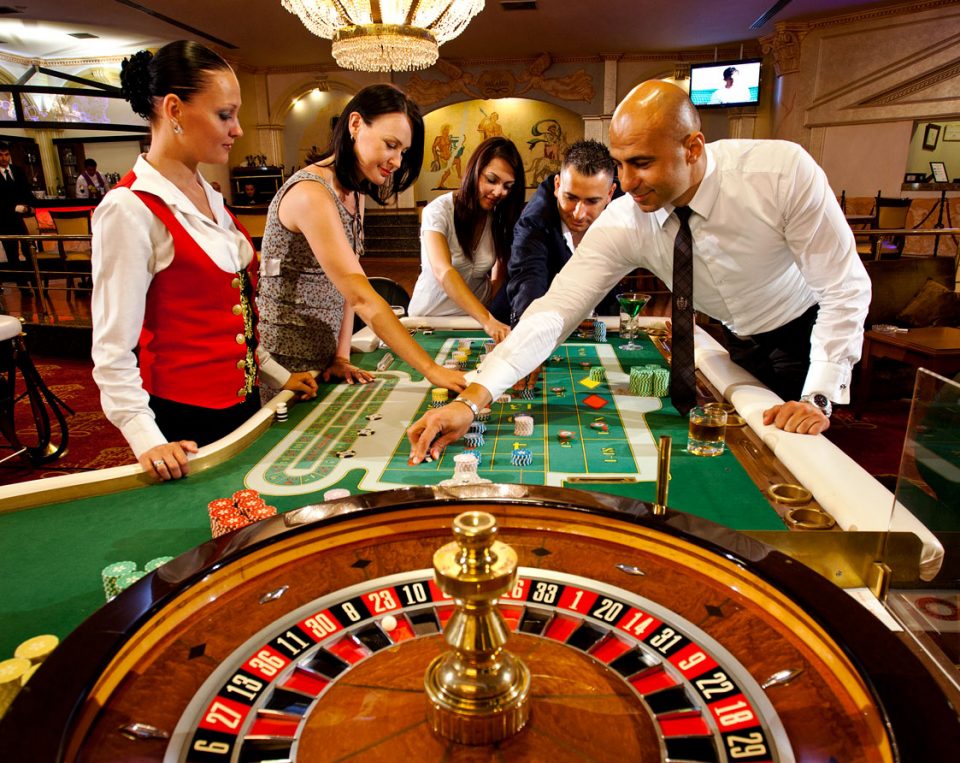
Gambling has been an integral part of human entertainment for millions of years, evolving through societies and periods to become the exciting casino activities we know today. From the ancient Chinese and Romans, who participated in multiple forms of betting and luck, to the advanced gaming floors of contemporary casinos, the appeal of gamble and winning has captivated individuals across the globe. The change from basic dice games and primitive betting setups to the opulent settings of contemporary casinos reflects major strides in both cultural standards and technological.
As societies evolved, so too did the complexity of gambling activities, with gambling activities emerging as a unique category of entertainment and excitement. These games have changed from casual gatherings centered around wooden tables to grand, opulent establishments designed to lure players. Today, we investigate this fascinating journey, analyzing how historical practices laid the foundation for the diverse and exciting casino games that bring joy to millions worldwide.
spintax
Historical Gambling Practices
Betting has significant roots in human past, with evidence of games of chance dating back to ancient societies. Archaeologists have found that as far back as 3000 BC, the people of China were using basic forms of betting with dice made from bones. Similarly, ancient cultures of Mesopotamia engaged in betting activities, often relying on the tossing of lots or dice to determine results. These early forms of gambling served not only as entertainment but also played crucial roles in social and cultural practices.
The people of Egypt also were involved in gambling activities, with games that included betting on the results of various events, including sports and religious festivals. Artifacts such as dice and depictions of players from ancient tombs show that betting was a frequent pastime. It provided both leisure and a means of engaging in social connections, often linked to celebratory occasions or significant gatherings. This activity revealed the universal appeal of chance and rivalry throughout history.
In ancient Rome, wagering became a prevalent practice among the citizens, as reflected by references in texts and the establishment of rules around certain activities. Romans enjoyed a variety of betting activities, from wagering on horse races to playing games akin to modern-day board games. The legal structure surrounding these activities began to take shape, establishing the foundations for betting regulations that would grow in the centuries to come. The prevalence of gambling during this period set the stage for the development of gambling house games in the future.
The Progression of Casino Games
Gambling games have undergone significant transformations from their roots to the contemporary entertainment options. In early civilizations, gaming was commonly associated to ceremonial practices, with games of dice found in Mesopotamia and betting on the outcomes of events in old Rome. These initial forms of gambling laid the groundwork for the formal games we see today. The change from informal gambling to systematic games happened as societies began creating rules and venues for wagering, showing cultural values and practices.
The Middle Ages saw the emergence of card games, which gained fame among European nobility. Games like the first and baccarat became mainstays in social gatherings. The development of printing technology also aided the spread of playing cards, making them more available to the general public. Nhà cái SHBET As gambling houses began to increase, these card games transformed into variations that appealed to wider audiences, eventually leading to the establishment of casinos as exclusive venues for gaming.
The 1900s marked a significant point in the evolution of casino games, with the ascendancy of commercial casinos in Vegas and other gaming hubs. This era introduced games like slot machines and modern adaptations of table games, complete with high-quality graphics and detailed betting structures. The advent of online casinos in the tail end of the 1990s additionally revolutionized the gaming industry, allowing players to access a great variety of casino games from the convenience of their homes. Today, gambling games go on to evolve, blending traditional elements with advanced technology to create captivating experiences for players around the globe.
Contemporary Gambling Laws
In the past few years, the landscape of gaming regulations has evolved considerably, particularly as technology and internet-based gambling have become increasingly prevalent. Authorities around the globe have implemented various laws and guidelines to guarantee that gambling activities are performed fairly, responsibly, and openly. These regulations often cover factors such as permits, advertising, gambler safeguards, and responsible gambling measures. Authorities aim to reduce issues such as problem gambling and cheating while fostering a just gaming environment.
The emergence of online gambling sites has necessitated a fresh approach to regulation. Many legal areas have created dedicated online gaming frameworks that cater to internet-based gaming, allowing operators to offer their offerings legally. These frameworks often demand operators to secure permits, adhere to strict safety standards, and offer assistance options to help players. By closely observing online activities, regulators can better protect consumers from risks and ensure that gambling is carried out in a secure manner.
Moreover, contemporary gaming laws are increasingly focusing on responsible gambling strategies. Many casinos and online sites now implement features such as self-exclusion, deposit limits, and breaks to help players manage their gaming habits. Awareness campaigns aimed at raising awareness about the risks of gaming are also widespread. As the industry continues to expand, the emphasis on sensible gaming continues to be a fundamental principle of governing efforts, showing a dedication to promoting a secure and pleasant gaming experience for all gamblers.
